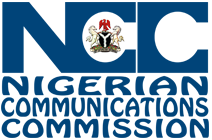 |
NIGERIAN COMMUNICATIONS COMMISSION
|
 |
INTRODUCTION
The Spectrum Administration Department has the primary obligation of managing the scarce Spectrum Resources on behalf of the Commission. It is made up mainly of Spectrum Engineers who have the mandates of planning, assigning and monitoring the Radio Frequency Spectrum Utilization of the nation. The Spectrum Administration department is structured into five units namely: Spectrum Planning Unit, Spectrum Assignment Unit, Spectrum Monitoring Unit, Spectrum Database Unit and Space Services Unit.
LOCATION
Fifth (5th) Floor,
Nigerian Communications Commission Headquarters,
Plot 423 Aguiyi Ironsi Street,
Maitama, Abuja.
HEAD OF DEPARTMENT
Engr. Austine Nwaulune
Tel: 09-4617255; 09-4617000
Email:
PURPOSE STATEMENT
We manage the spectrum resource on behalf of the Commission in an equitable, fair and transparent manner.
VISION STATEMENT
A society where frequency spectrums are readily available, clean and free of encumbrances.
SERVICE PROVISION
- Spectrum Planning
- Identify new spectrum bands
- Spearhead the allocation of the spectrum for the provision of suitable telecom services in accordance with ITU recommendations and National Frequency Plan
- Review frequency plans and adopt appropriate channelization patterns
- Regularly monitor global trends and various radio regulations, and apply same to the industry in Nigeria, as needed.
- Spectrum Assignment
- Development of local standards and adaptation of international standards for spectrum use in the Nigeria telecom industry.
- Responsible for the processing of frequency application from operators and all other commercial users of frequency in the country.
- Development of spectrum licensing conditions for use by operators.
- Draws up technical specifications for deployment of all spectrum based telecom services and ensure strict adherence.
- Generate letters of frequency assignment
- Attend to enquiries from all stakeholders on the availability or otherwise of any radio frequency.
- Calculation of frequency fees and invoicing of new assignments.
- Spectrum Monitoring
- Constant monitoring of radio frequency to make sure they are clean at all times.
- Attend to spectrum interference complaints from stakeholders
- Clearance of reported spectrum interference cases.
- Enforce sanction on erring operators in conjunction with Compliance Monitoring and Enforcement department of the Commission.
- Suggest and recommend the purchase of various tools which will help in carrying out effective spectrum monitoring system.
- Spectrum Data Base Management
- Keeps records of all frequency assignment.
- Generating invoices for spectrum assignment renewal.
- Ensure adequate quarterly frequency usage returns from all operators as stated in their frequency licensing conditions and maintenance of records of deployed base stations and microwave links in the Country.
- Collation of frequency utilization data on a national basis to aid computation and analysis of coverage areas
- Reporting indebted operators to the appropriate authority in the Commission towards the recovery of the debt.
- Space Services Unit
- Liaise with the providers and users of space services such as Space Segment Providers, HAPS operators, Drones operators, telecom companies, government and security agencies for a harmonised and secured service provisioning and utilization in Nigeria.
- Promote and encourage utilization of space services capacity by industry players to deploy service in the unserved and underserved areas of Nigeria.
- Ensure the development of regulatory guidelines such as commercial communications satellite guidelines, guidelines on HAPS, commercial communication drones and any relevant guidelines.
- Processing and evaluation of application for landing right or landing permit by the space segment providers.
- Development and regular update of database of commercial satellite space segment providers with active satellite in the orbit.
- Processing and evaluation of application for Satellite Earth Station permit.
- Develop database of subscribers to commercial satellite communication space segment providers such as VSATs, GMPCS and update of the database regularly.
- Processing and evaluation of application for Commercial Drones deployment in Nigeria.
- Processing and evaluation of application for High Altitude Platform Station (HAPS) deployment in Nigeria.
- Processing and evaluation of application for satellite filing by commercial communications satellite operators in Nigeria. In conjunction with the MoC.
- Development of Space Radio Monitoring Station and ensuring the station is recognised by the ITU as an ITU International Satellite Monitoring Station. Using the station for routine monitoring of satellites and other space services for regular update of databases.
- Interference resolution between the space service providers and between the space services and other services.
- Liaising with security agencies in the country to ensure secured services by space services communication operators.
- Liaising with the ITU, Equipment Vendors, Tech companies and other telecom regulators across Africa and the globe in the areas of space services.
SERVICE DELIVERY
In discharging the above services the department promptly attends to customers and staff needs and enquiries.
The department ensures at all times that services are discharged in consonance with the Commission’s core values of integrity, excellence, professionalism responsiveness and innovation.
SERVICE DELIVERY MONITORING
The department periodically monitors stakeholders perceptions of its services, feedbacks are evaluated with all observed lapses treated immediately. This is achieved through periodic organization of stakeholder’s fora and regular consultative meetings with stakeholders.
DETAILS OF STAKEHOLDERS
- Telecom Operators
- National Broadcasting Commission
- Federal Ministry of Communications and Digital Economy
- National Space and Research Development Agency (NASRDA)
- Association of License Telecom Operators of Nigeria (ALTON)
- Association of Telecom Company of Nigerian (ATCON)
- Abuja Metropolitan Management Council (AMMC)
- Voice of Nigeria (VON)
- National Emergency Management Agency (NEMA)
- Defence Headquarters
- Federal Ministry of Aviation
- Nigerian Communication Satellite (NIGCOMSAT)
- Nigerian Civil Aviation Authority (NCAA)
- Nigeria Airspace Management Agency(NAMA)
- Nigeria Ports Authority (NPA)
- The Nigerian Navy
- The Nigerian Air Force
- The Nigerian Army
- The State Security Department (DSS)
- Federal Ministry of Science and Technology
- The Amateur Radio Society
- Nigerian Maritime Admin & Safety Agency (NIMASA)
- Nigerian Maritime Authority
- The Nigerian Police
- Nigerian National Petroleum Company (NNPC)
- Nigeria Railway Corporation
- Oil Companies
- Galaxy Backbone Plc
- ITU
- ATU
- WATRA
- Finance department of the Commission
- Compliance Monitoring Department of the Commission
- Legal and Regulatory Affairs department of the Commission
- Policy Competition and Economic Analysis department of the Commission
GRIEVANCE REDRESS MECHANISM
Stakeholders are enjoined to seek redress by calling or preferably writing to the Servicom Networking Standing Committee Member whose details are listed below:
Adekunle Adebisi,
Spectrum Administration Work Station 5th Floor, Room 512
Spectrum Administration Department
Nigerian Communications Commission Headquarters,
Plot 423 Aguiyi Ironsi Street,
Maitama, Abuja.
Tel: 09-4617281; 09-4617000
Email:
STAKEHOLDERS OBLIGATIONS/EXPECTATIONS
To help the department discharge its duties, customers are expected to:
- Be fully informed of the department’s Servicom Charter.
- Follow the laid down procedures/channels for obtaining required services and information.
- Request/apply in good time to ensure necessary processing.
- The Department in addition organizes and invites Stakeholders to Periodic Meeting on Spectrum Utilisation and also to our Annual Forum on Emerging Technologies.
LIMITATIONS
- Budget Constraint can hinder the achievement of the projects listed above
- Lack of timely approval by management
- Poor Inter-departmental cooperation.
CHARTER REVIEW
As the department receives feedback and possible consultations with all stakeholders, this Charter will be reviewed from time to time to ensure it continues relevance and validity.
CONCLUSION
The department is poised to work with its stakeholders towards the growth and development of the Nigerian Telecom sector.